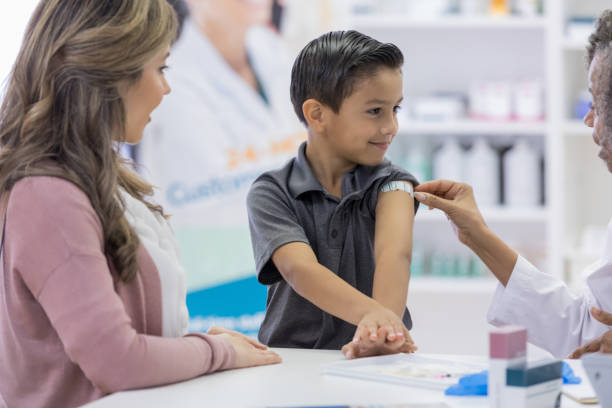Understanding Vaccine Hesitancy
Vaccine hesitancy is not a new phenomenon; however, the COVID-19 pandemic has heightened the urgency of addressing this issue. Parents, who play a critical role in vaccination decisions for their children, may express concerns about the COVID-19 vaccine for various reasons:
1. Safety Concerns: Some parents worry about the safety of the COVID-19 vaccines, especially since they were developed at an unprecedented pace. Addressing these concerns involves explaining the increased allocation of resources (time and people) provided during the development as well as the rigorous testing and monitoring processes that ensure vaccine safety.
2. Misinformation: The internet and social media are littered with misinformation and theories about vaccines. Pediatricians should proactively provide evidence-based information to counteract these false claims.
3. Fear of Side Effects: Concerns about potential side effects, particularly among children, are common. Parents should be educated about the mild and temporary side effects that can occur after vaccination, which are generally far less severe than the risks posed by COVID-19 itself.
4. Lack of Trust in Government and Pharmaceutical Companies: Some parents may mistrust government agencies and pharmaceutical companies, which can contribute to vaccine hesitancy. Open communication and transparency in vaccine development and distribution are essential to rebuilding trust.
5. Complacency: In areas with low COVID-19 case counts, parents may feel less urgency to vaccinate their children. Emphasizing the importance of achieving herd immunity and preventing future outbreaks is crucial.
Pediatricians’ Role in Addressing Vaccine Hesitancy

2. Provide Accurate Information: Share reliable information about COVID-19 vaccines, including safety data, efficacy, and the importance of vaccination in preventing severe illness and transmission. Empower patients and their families with the ability to do research properly by knowing how to search for legitimate information online.
3. Address Concerns: Listen actively to parents’ concerns and address them empathetically. Utilize clear, simple language to explain concepts they may not be familiar with.
4. Encourage Dialogue: Encourage open dialogue between parents and healthcare providers. Offer opportunities for questions and discussions during well-child visits.
5. Lead by Example: Pediatricians can set an example by being vaccinated themselves and sharing their experiences with parents.
6. Collaborate with Public Health: Work closely with public health agencies to stay updated on vaccine recommendations and communicate these recommendations to parents effectively.










